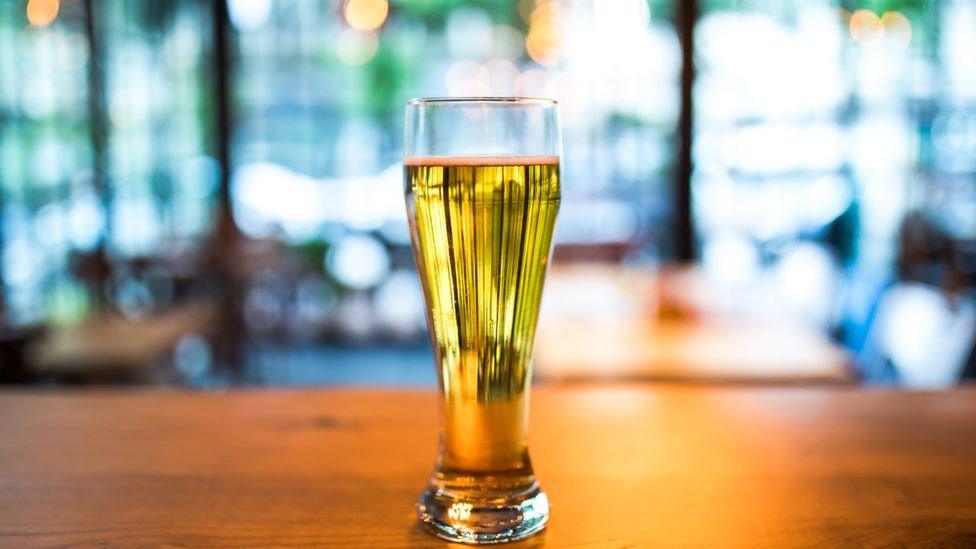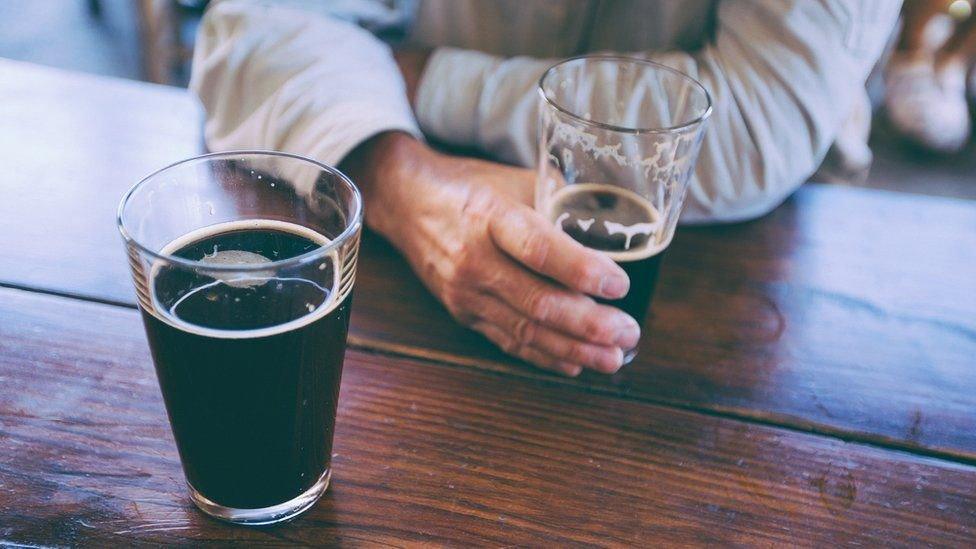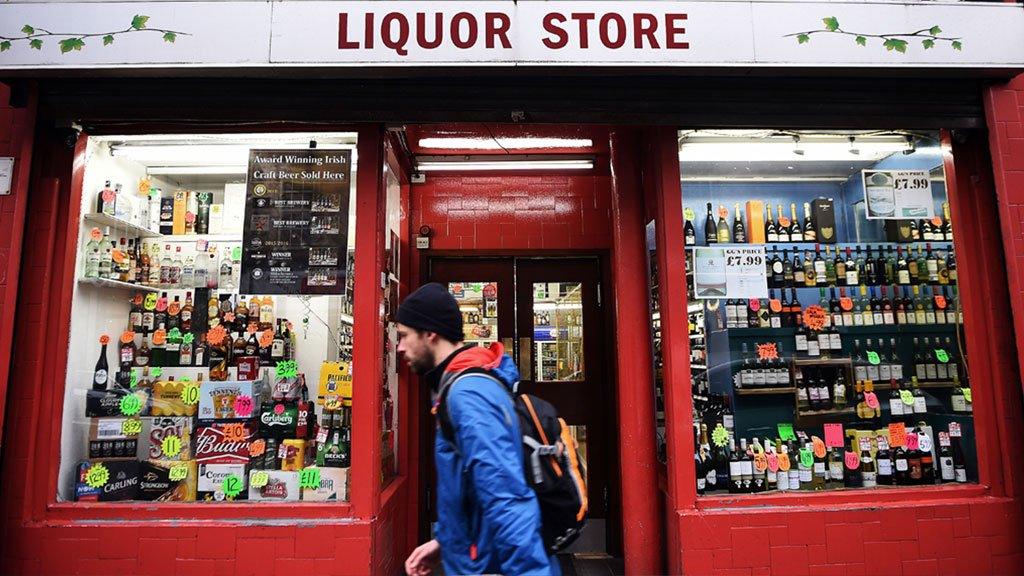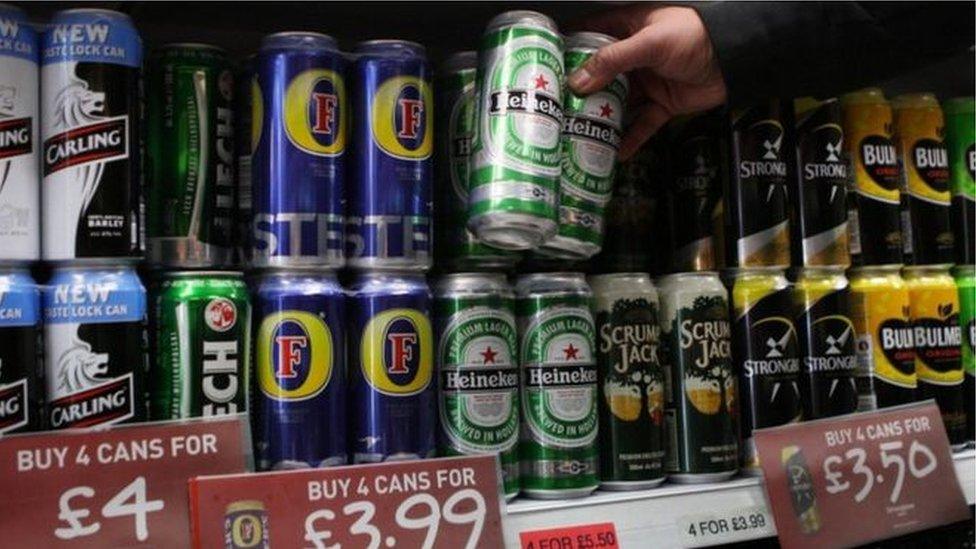Republic of Ireland signs off plans for alcohol minimum pricing
- Published

The Republic of Ireland's cabinet has signed off on a plan for alcohol minimum unit pricing, despite opposition from retailers.
The measure will come into effect on 1 January 2022.
Some retailers fear unless similar measures are introduced in Northern Ireland there will be a surge in cross-border shoppers seeking "cheaper booze".
The government believes minimum pricing is a vital public health measure.
Statistics from the country's Revenue Commissioners indicated that alcohol consumption levels in 2020 were 10.07 litres of pure alcohol per person, only slightly down - 6.6% - on the previous year despite the closure of many pubs and restaurants for large parts of 2020.
Alcohol consumption has remained at about 11 litres per person since 2015.
That is the equivalent of 116 bottles of wine or 445 pints of beer per adult every year.

Scotland introduced minimum unit pricing in 2018 and has seen alcohol consumption levels fall
The measures will see a can of lager costing at least €1.32 (£1.14) and a bottle of chardonnay €7.75 (£6.70) based on 10 cents per gram of alcohol.
The move was welcomed by the Irish Medical Organisation.
President Dr Ina Kelly said the the decision was "a key public health intervention which will help in the ongoing battle against alcohol misuse".
The representative body Drink Ireland said it was in favour of tackling excessive alcohol consumption to reduce its misuse, but any measure should be introduced on both sides of the border simultaneously.
Its director Patricia Callan said that unilaterally introducing minimum unit pricing in the Republic of Ireland would "massive pressures on border businesses, and lead toto an increase in illicit alcohol smuggling at the border, all at a vulnerable time for our economy".
Scotland introduced minimum unit pricing in 2018 and the following year alcohol consumption fell to its lowest level in more than two decades.
Related topics
- Published1 May 2018

- Published15 November 2017
